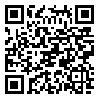BibTeX | RIS | EndNote | Medlars | ProCite | Reference Manager | RefWorks
Send citation to:
URL: http://jccnc.iums.ac.ir/article-1-128-en.html
2- Department of Medical-Surgical, School of Nursing and Midwifery, International Campus, Iran University of Medical Sciences, Tehran, Iran. ,
3- Department of Biostatistics, School of Public Health, Iran University of Medical Sciences, Tehran, Iran.
Background: Metabolic syndrome is a disorder associated with obesity. Compared with men, postmenopausal women are at higher risk of being affected by this chronic disease. This study aimed to determine the effect of self-care education program on anthropometric indicators in postmenopausal women with metabolic syndrome.
Methods: A cluster randomized controlled trial was performed on 120 postmenopausal women aged 45-60 years with metabolic syndrome at the 8 healthcare centers of Tehran municipality. The study was carried out in the second half of 1395. In this study, healthcare centers were randomly allocated to experimental and control groups. Then, sampling was performed as targeted and accessible from each center. The intervention was done based on the educational needs of patients and according to the Orem framework. This intervention was presented as a 5-session self-care education program. The training program was implemented within 5 weeks during. Training groups consisted of 5-7 people. Anthropometric information was investigated before and after the end (8 weeks) of the training program in both groups. Data were analyzed using SPSS (version 22) and STATA (version 13) software, and Chi-Square test, T-Independent test, T-Paired test and SVY environment.
Results: Our findings demonstrated that self-care training program decreased indicators (weight, body mass index, waist and hip circumference, middle arm circumference, and waist to height ratio), while no significant reduction was observed in the waist to hip ratio.
Conclusion: Present study established that self-care program based on the Orem framework has positive effects on anthropometric indicators in postmenopausal women with metabolic syndrome. Therefore, this program is recommended as a nursing intervention in patients with metabolic syndrome.
Received: 2017/02/7 | Accepted: 2017/06/21 | Published: 2017/08/1
| Rights and permissions | |
 |
This work is licensed under a Creative Commons Attribution-NonCommercial 4.0 International License. |





